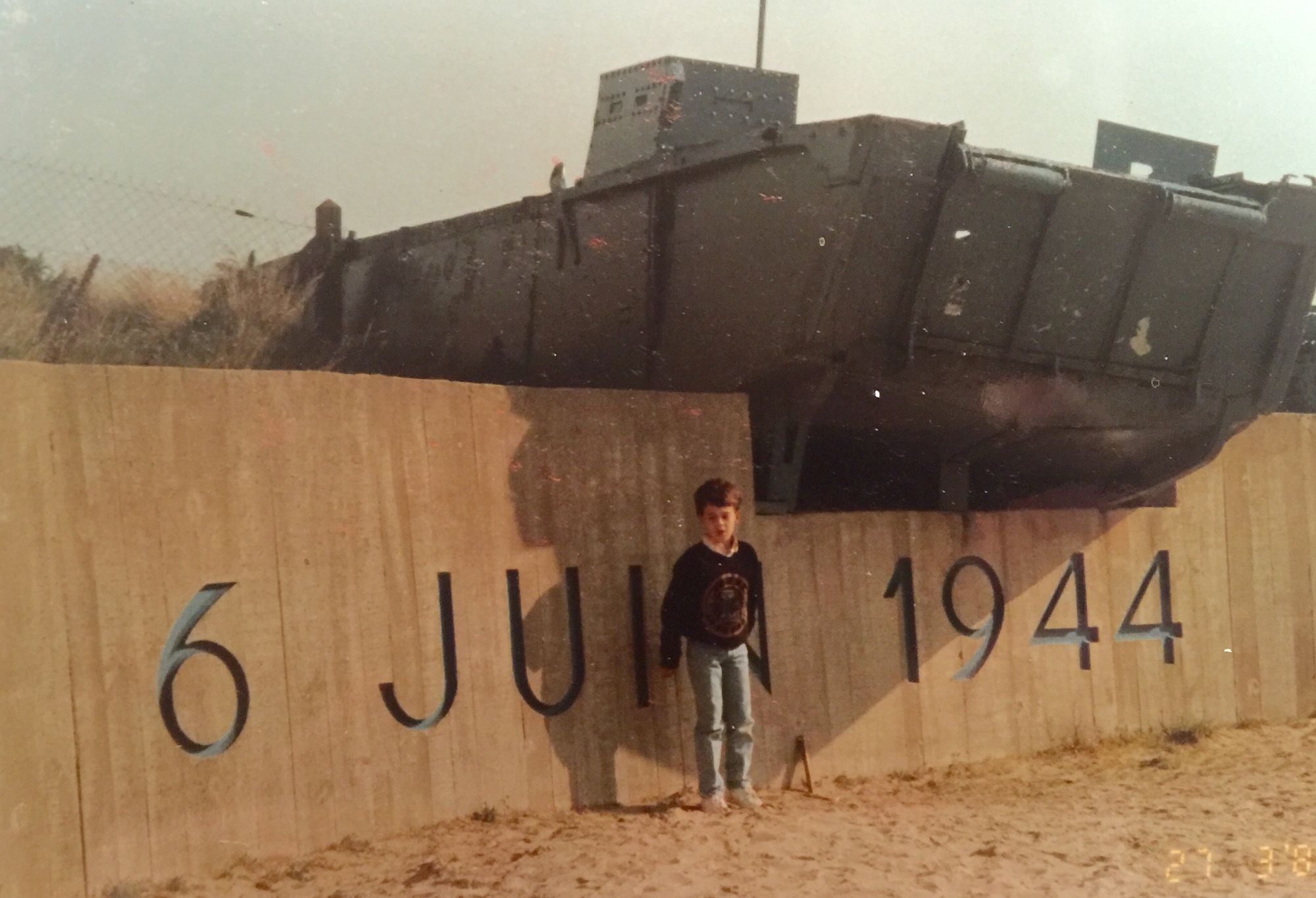My 2023 Birthday Worldview

Birthdays are always good opportunities to rise above the fray of our lives and take a larger look at what is happening all around us. It’s a good time to remember what is important to us, and what we are trying to do with our lives.
June 6 is my birthday, otherwise known as D-Day.
My entire life, D-Day was a big deal, a big day of memory. It’s a historic day, and it always made me feel like I had to pay attention to what the world was all about, what it had traversed, and how it was evolving.
I grew up in France, but I was born a Franco-American. My American mother and French father made me one even before I could think about what it meant to be anything other than alive, hungry and thirsty, cold or hot.
As a kid, I’d watch the D-Day memorial celebrations as I celebrated my own special day. And I’d see all these veterans line up on the Normandy beaches I knew well to pay homage to their lost brothers and to the courage and grit of the Greatest Generation.
The Normandy landing was part of a greater fight. It was indeed a just fight against pure inhumanity.
This year feels different.
We know how dangerous it is to forget our history. But it’s human nature, repeated over and over.
Thucydides and Herodotus, the fathers of history, took pains to investigate events and write them down for posterity, so that we could remember the consequences of human choices and learn lessons.
We are bad students.
79 years after the heroic, successful and awfully deadly D-Day landing and Battle of Normandy (many tens of thousands killed), only a tiny handful of brave veterans are still alive to tell the story. There are almost no grandparents or great-grandparents left to tell the latest generations what happened first hand. And so we are left with the history books, with the photos and films, and with the museums, memorial sites and many cemeteries across Normandy. We must cherish the last living memories of these heady days. Next year’s 80th birthday memorial celebrations will be particularly meaningful.
Has the world learned anything since then? Where do we stand on the arc of history? And how should we, as individuals, live our lives in consideration of it all?
Some things have gotten better since then, undoubtedly.
Western Europe truly came together in a way it never had, and now the European Union is a true, if imperfect, union of East and West, North and South. Let us not minimize this feat: it may seem like it took a long time, but considering the complexities of building this new system in the wake of the worst war in history, it has come about astonishingly fast. This union is also still in construction, with high points and low points to be expected along the way. And if the United States is still a work in progress, nearly 250 years after its Declaration of Independence, the European Union is really just a baby.
In many ways, humanity has made plenty of progress, and has made it possible for life to be easier, somewhat gentler. People overall live longer than in 1944. The world is connected in ways it never was. Millions of people have traveled far and wide across the globe, encountering different cultures in ways unimagined before. We are now on the verge of establishing colonies on the Moon, on Mars, and beyond.
Technology is evolving so quickly that our brains are barely able to adapt. We are all taped to our individual smartphones when just a generation ago we were still sharing a single landline for each household. How did we ever manage to leave our homes without a communication device? How did we ever make it to our meetings without GPS? How did we get anything done without email, sms, or even social media?
Artificial Intelligence is fast creeping into our everyday lives, not to mention the likes of ChatGPT and MidJourney, which are radically reshaping the way we work and even the way we think. In fact, we hardly know how radical these shifts are: we stand in the middle of the deep forest, and see very little ahead of us.
For some, these technological advances hold wonders for the future of the human race. For others, they are its death sentence.
In the meantime, and for all our smarts, we are still going at each other like bullies in middle school. War is everywhere, some worse than others. The Russian war against Ukraine is bad enough, and risks escalating. The tensions over Taiwan that pit China against America are extremely worrisome. The civil wars in Sudan, in Yemen, and the many other external and internal hotspots around the world could easily boil over.
Race relations, gender relations, generational relations, class divisions, religious divisions, political divisions are rife and vociferous, made ever more so by the social media amplifiers. Families and groups of friends are having a tough time sticking together.
While all these human conflicts show how far we still have to go in basic human relations, we are faced with another non-negotiable human-made catastrophe: climate change.
In fact, this is the number one issue. This is the 21st century’s do or die challenge.
This is it.
I know some people are still debating whether or not the changing climate is really due to human activity, or how bad it really is, or if we can even really do anything about it.
To each their own. But my take is clear: we can do a much, much better job cleaning up this world, which we have polluted, soiled and overheated. Our children and future generations deserve to live in a better world than that. It’s time we grew up and became responsible caretakers of our own home in the universe, for our own sake if nothing else.
Humanity’s future potential is wrapped into this one issue. If we can steady the ship and overcome this huge challenge, we will not only make the world a better place to live for future generations, but we will actively prevent devastating conflicts. Indeed, access to vital resources, the most important being water, are the key to world peace.
We have been slow to respond to this impending crisis, despite decades of warnings. Governments are finally beginning to take serious steps toward reducing CO2 and cleaning our environment (such as plastic).
The natural world we know and love is changing. It’s not just the faraway ice caps that are melting. It’s also hitting much closer to home, such as my own beautiful D-Day landing beaches in Normandy. Indeed, the D-Day beaches are receding faster (NYTimes) than anyone had anticipated, and will nearly all disappear within the next decades.
The seas truly are rising, cliffs are crashing down into the ocean and entire coastal villages and towns will be lost.
So as I celebrate this birthday of mine, and as I take a look at the state of the world around me, I am more committed than ever to doing my part to make my time here count. If we can solve the climate crisis and find a way to tread lightly on this planet without returning to our prehistoric caves, we will avert disaster and make it possible for future generations to live very well.
As the Great Law of the Iroquois states, our decisions today should be made with the seventh generation to come in mind. We must learn to think well beyond ourselves.
You will see me address this issue with increasing regularity. I will bring it up as both a regular citizen of the world as well as a musician, since indeed, music and the arts generally will be part of the solution.
And I hope to have constructive exchanges with you along the way.
After all, we are on the same ship!
